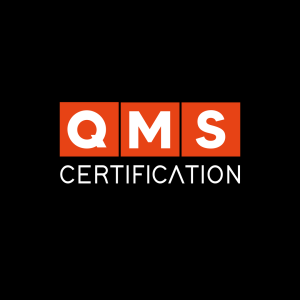ISO 56002 was published in July 2019 with the goal of making it the main reference in innovation management and has already been transforming companies worldwide. A QMS is responsible for the promulgate, dissemination of culture and launches an unprecedented product to certify compliance in companies.
ISO 56002 is a compilation of more than 10 years of ISO studies, where 163 countries have contributed to best practices in innovation. The defined rules came out of ISO 56002, which is a standard geared towards innovation management and has full adherence to the changes that are occurring, mainly due to the arrival of the new industrial revolution (industry 4.0).
ISO 56002 wants to standardize terminologies, tools, methods and interactions between the parties involved in innovation. As the innovation management system implemented in companies, the expected gains are:

- Save costs and reduce risks by innovating and collaborating across borders;
- Increase the organization’s ability to make decisions: test and try, fail quickly, the ability to take reasonable risks, face challenges and changes in the world;
- Improve the results of the innovation process and contribute to monitoring the return on investments made in innovation
- Share a globally accepted “common language” for managing innovation
- Assess the organization’s progress and identify and share good practices in innovation management
The implementation of ISO 56002 occurs within organizations following the guidelines of the Standard, as well as establishing methods and tools postponed generating invocation in the organization. ISO 56002 can be implemented in an integrated manner with other management system standards such as ISO 9001, ISO 27001, among others, as it is aligned with attachment SL, a common layout between ISO Standards.
The results already measured among the companies that implemented the Standard point to the structuring of a consistent internal innovation management program, in addition to gains related to the integration of employees, with the goal to innovate their processes, products and services.

A QMS is a pioneer in structuring a program that allows auditing companies and issuing an ISO 56002 certificate by attested and conformity, this process follows the strict requirements of internal processes of QMS processes such as performance of auditors, structuring of technical process, internal tracking of process and periodic audits to maintain the certificate of conformity. To obtain the certificate of conformity according to ISO 56002, the company must follow the following steps:
- Implement the ISO 56002 guidelines in your processes;
- Contact QMS to evaluate the company profile and issue the commercial proposal;
- Conduct initial audits with QMS divided between document audit and audit of innovation processes;
- Receive the ISO 56002 certificate of conformity and maintain an active management system with annual internal audits;
- Annually be audited by QMS to maintain the certificate of conformity.
We at QMS are looking forward to explain the whole process to you, get in touch if you want to know more about the process.











